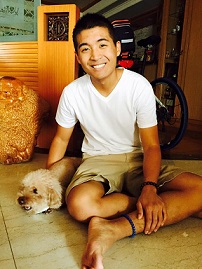Getting the most out of your correspondence games
First, I'll start off with what you can't do:
Consult a computer for analysis,
Ask someone for help.
You can do everything else, but this statement is vague and not really helpful, thus here are some suggestions:
Opening
Look at similar Grandmaster games. You can take this opportunity to learn some of the typical plans employed in those positions - I should note that it is OK to "follow" the exact games that others have played. This is, after all, one of the big differences between correspondence and OTB chess (infinite memory!)
Middlegame
Write your analysis down. Use the analysis board (although this could be omitted if you wish to practice calculation). Correspondence is about a strive for perfection - so take your time to be careful! I suggest writing down your analysis so that you can look back at the game and remember why you made particular decisions (e.g. on move 19 I made the move ...g5 because of the following lines...)
Endgame
Study that endgame! Like I mentioned earlier, it isn't ok to consult a computer for analysis, but it is however definitely ok to research the particular endgame (e.g. rook vs rook and h pawn) to learn how to play the endgame first.
Hopefully these tips helped - the idea is to maximize the learning from any particular game.
